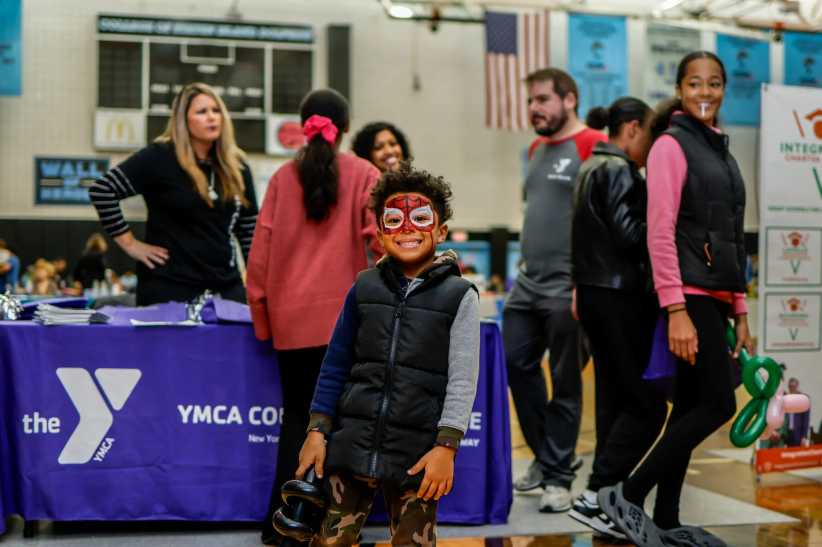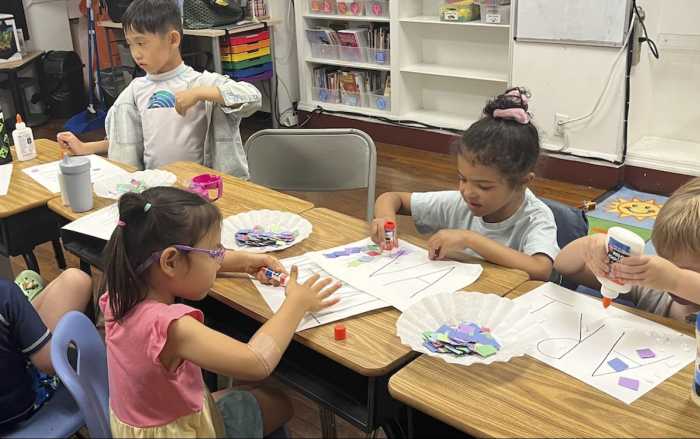In this month instead of “Be Mine,” we thought we’d focus on “Be Free!” Sally Tannen, Director of 92Y’s Parenting Center, offers her advice on how to encourage independence in young children, and why it’s important that you do.
Fostering independence in your child from an early age will help her develop critical skills that will serve her lifelong: Resiliency. Problem solving. Confidence. Self-esteem. In other words, the building blocks for a successful and happy life. But how exactly should parents go about doing this? Sally Tannen, director of 92Y’s Parenting Center, offers some tips:
1. Start early
It’s never too soon to introduce feelings of independence. For example, by doing things over and over, even babies develop a sense of mastery. You can help them by being consistent in how you interact with them every day. By 6 or 7 months, babies will understand you when you say you will be there in a minute, I’m on my way, and then you come. Through repeated experiences with consistent outcomes, they are reassured you will come back and they will feel confident when they know what to expect.
[gravityform id=”13″ title=”false” description=”false” ajax=”true”]
2. Mistakes are okay
Sometimes, a little intended discomfort can be a good thing. Struggling to crawl and stand. Learning to put on socks and shoes. Going down a slide. It’s okay for children to experience some frustration because ultimately that’s how we master skills –trial and error. Of course, always step in when necessary, such as when there is an unsafe situation, or your child becomes overly exasperated. But it’s okay to allow children to experience frustration–not too much, but just enough. After all, we will all experience failures and frustrations throughout life, and learning to work through them is in itself a life skill.
3. Introduce choice
Allowing children to make choices when appropriate helps them feel a sense of control over their lives and therefore security and confidence. It’s not about letting them make every decision and having their way. Rather, you can introduce age-appropriate choices such as allowing toddlers to choose between two outfits for school or giving children options for dinner. Allowing for choice also encourages children to start thinking for themselves and teaches them to make decisions and ultimately to develop feelings of self-determination in life.
4. Make it fun
When teaching children any skill, it never hurts to make it fun. In our 2’s Together classes, for example, children learn to put on their own coats by doing the “Coat Flip.” They are so excited when they learn to do it themselves.
5. Set the stage for success
Help ensure every opportunity for success by making sure children have enough time and the right physical environment to succeed when doing things for themselves. For example, a step stool allows toddlers to reach the sink to wash their hands and clean up. Designated storage space for toys and clothes makes it easier for children to clean up. Allocating enough time in the morning to get ready before school and in the evening to get ready for bed also helps set the stage for success. And as we all know, feelings of success are self-reinforcing and give us the confidence to take the next step.
6. Be patient
We want to give children the opportunity to become increasingly self-directed so that they move in a direction that they are ready for, not what we think they are ready for. Adults very often try to push children to the next thing before they are ready. If we can step back a bit, we give children the opportunity to feel mastery and independence when it comes naturally for them. That in and of itself is empowering for them because it reinforces that they are doing it on their own, not because they are being forced. Additionally, by being patient ourselves, we are modeling that behavior for our children and thereby teaching them how to be patient in the process.
7. Help them become problem-solvers
Resist the urge to solve routine problems for children. As always, if there is a serious situation, you need to step in. But many situations — from routine conflicts with other children to spills – can be resolved with just a little guidance from you. For example, you can ask “How do you think we can fix this?” and then let them take an active role in solving the situation. This teaches children not only how to take care of themselves, but also take care of others.
Director of 92Y’s Parenting Center and new Grandparents Center, Sally Tannen has been supporting early childhood parents, building community, and creating and offering activities and classes for babies, kids, parents and grandparents for thousands of NYC families for more than 25 years. A mother of four and grandmother of three, Sally’s personal experience continues to enrich and inform her work. To learn more about the 92Y, visit 92y.org!














